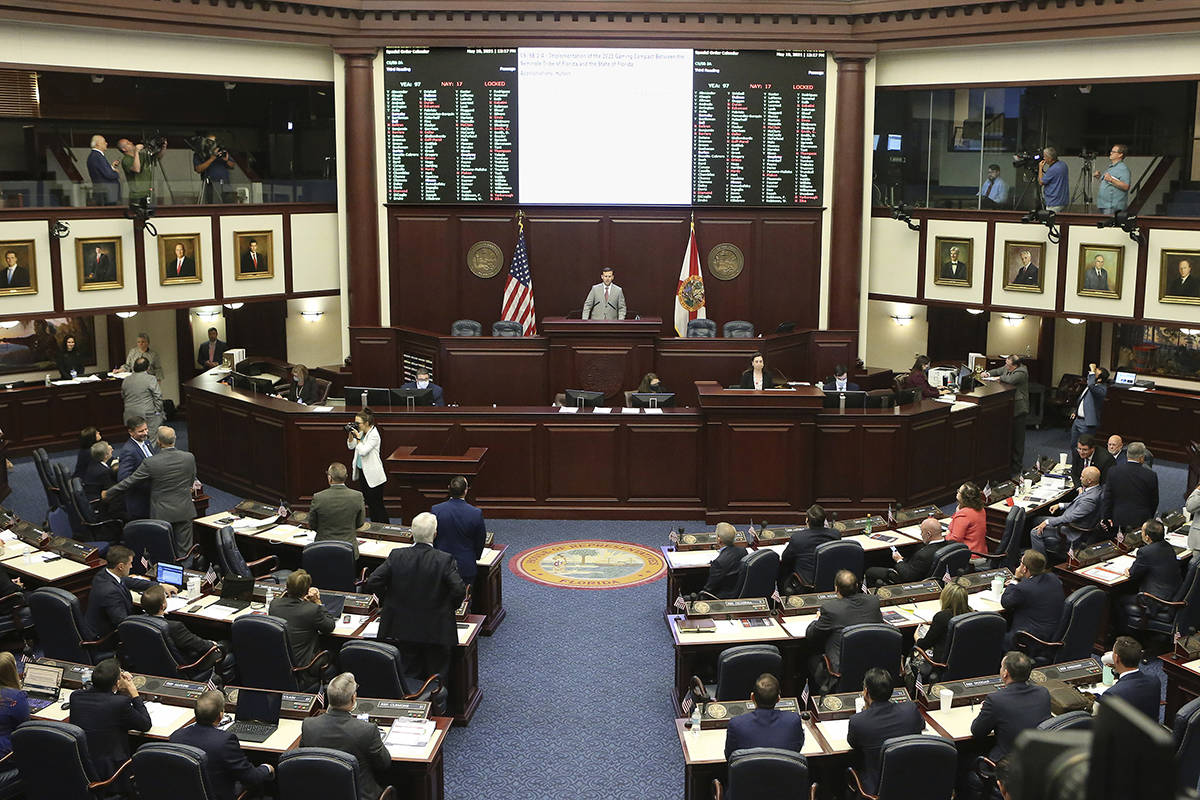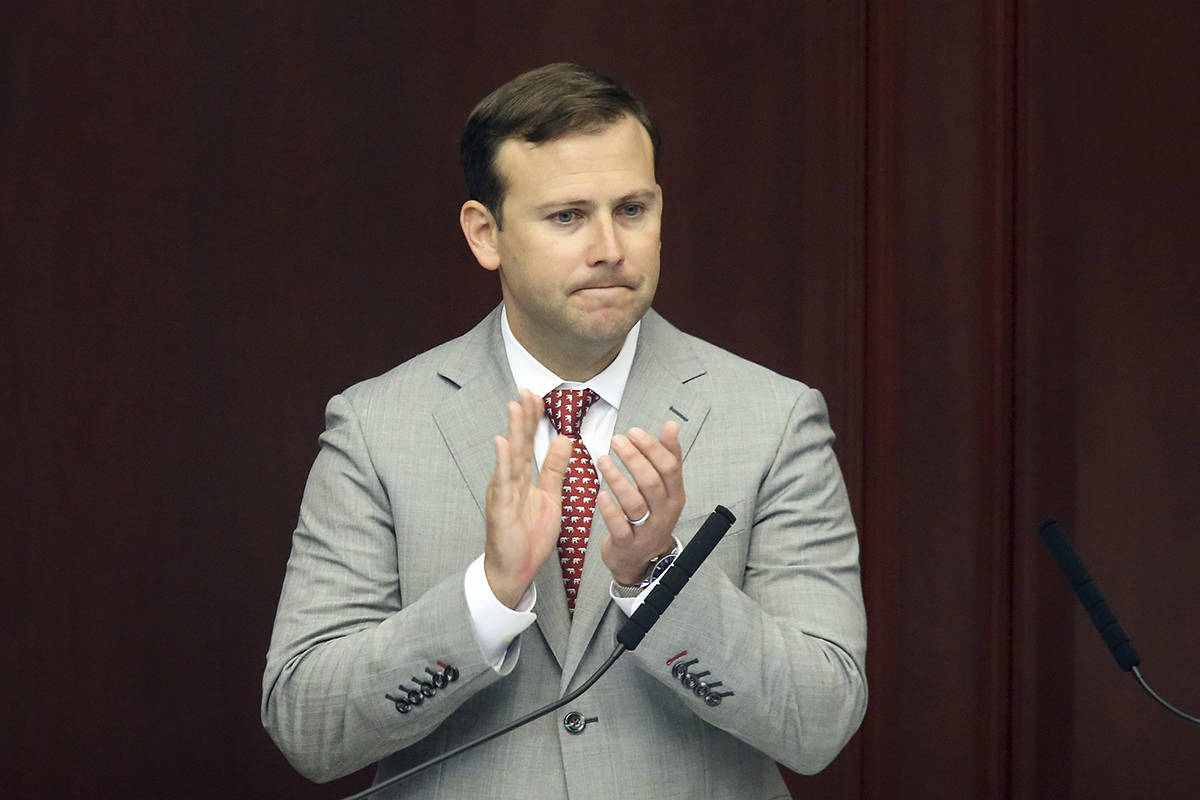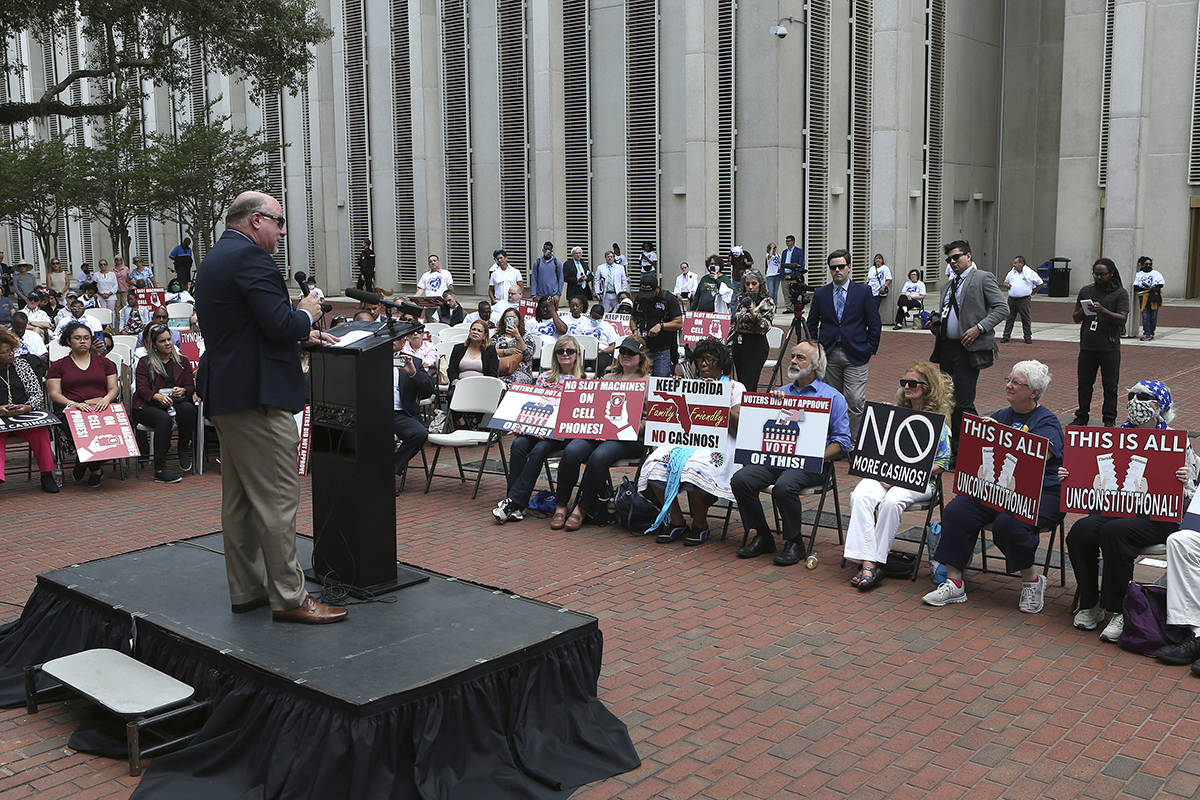Florida’s plans for sports wagering expected to draw legal challenges
Florida is on its way to expanded gaming and sports wagering — maybe.
The state’s House on Wednesday approved a gambling compact with the state’s Seminole Tribe of Florida, drafted by Gov. Ron DeSantis and approved by the Senate on Tuesday.
Under the deal, which would take effect Oct. 15, Florida expects to generate $20 billion over the next 30 years.
Florida is the latest state to move toward legalized sports betting, a process that began three years ago when the U.S. Supreme Court struck down the Professional and Amateur Sports Protection Act of 1992.
An activity once only allowed in Nevada, the number of states where bookmakers can legally take sports bets is closing in on a level where more states permit sports betting than don’t, with legislation or regulation pending in Arizona, Maryland, South Dakota, Washington, Wyoming and Florida. Twenty-two states and Washington D.C. already allow some form of sports betting.
The Seminoles, operators of Hard Rock International casinos and hotels worldwide, have been eyeing entering the Las Vegas market in recent months.
Under the compact DeSantis proposed, the Seminoles would be allowed to offer craps and roulette in its Florida casinos and operate and control sports wagering statewide at facilities off the tribe’s reservation.
And that’s where questions have arisen.
Critics of the DeSantis plan say gambling expansion in Florida isn’t allowed by Florida’s Amendment 3, which requires a public vote before any gaming expansion outside of tribal lands.
There also are legal questions about whether the Seminoles can offer mobile sports wagering outside of reservation land. The tribe contends it can because internet servers would be located on tribal property.
Under the compact authored by DeSantis, the tribe would control all sports wagering at horse-racing tracks, jai alai frontons and former dog tracks in the state for a share of revenue.
While the governor and the state’s Legislature have approved the gaming expansion plan, it still requires a review within 45 days by the U.S. Department of Interior, which oversees tribal gaming through the Indian Gaming Regulatory Act.
House Speaker Chris Sprowls acknowledged that legal challenges are forthcoming, considering the size and scope of the agreement.
“Obviously, having this kind of agreement, you’re navigating kind of the icebergs or legal hurdles,” he told reporters after the compact’s passage.
Lawmakers approved the deal during a special session held just more than two weeks after they ended their annual 60-day session.
“One of the main selling points of the new Florida gaming compact — which gives the Seminole Tribe of Florida complete control over all legal sports betting statewide (including all bets placed on mobile devices and at licensed pari-mutuel facilities) — is that it would provide a ‘safe harbor’ against any constitutional challenge to sports betting under Florida Amendment 3,” said Daniel Wallach, a Florida lawyer who is an expert in sports law and gaming law.
Writing recently in Forbes magazine, Wallach said, “It is based on a false premise — that the legalization of sports betting outside of tribal lands would violate Amendment 3’s prohibition against non-voter approved ‘casino gambling.’ This unfounded fear — stoked in various media outlets by the proponents of Amendment 3 — has led the state down a more legally treacherous path: approving a compact that flouts the federal requirement that all ‘gaming activity’ take place solely ‘on Indian lands.’”
Wallach said by trying to steer clear of potential constitutional problems, the state may be creating an even bigger problem with more far-reaching consequences, including the likelihood that a federal court would reject parts of the compact for noncompliance with the Indian Gaming Regulatory Act.
That, he said, would trigger the compact’s severability clause, which would guarantee a tribal monopoly over all in-person sports betting, while eliminating all mobile wagering originating off of tribal lands and all pari-mutuel participation in sports betting.
“This isn’t just a hypothetical,” Wallach wrote. “This is the likely outcome given how the compact is structured and the existing precedent under federal law. If this scenario doesn’t undermine the overall intent of the compact, then I don’t know what does. This is the price that the state of Florida and the pari-mutuel industry will pay for state negotiators shortsightedly trying to avoid one nonexistent risk for a surer catastrophe under IGRA.”
Contact Richard N. Velotta at rvelotta@reviewjournal.com or 702-477-3893. Follow @RickVelotta on Twitter. The Associated Press contributed to this report.

























